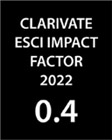Geographical aspects of creative economy in Hungary
DOI:
https://doi.org/10.17649/TET.25.1.1772Keywords:
creative economy, creative class, knowledge-based society, competitiveness of cities, Budapest Metropolitan RegionAbstract
As a consequence of the shift from the Fordist production system to the post-Fordist economic structures, the cities and metropolitan regions have acquired an ever growing importance and became the centres of economic and social development of countries and regions. Nowadays creativity, knowledge and innovation are broadly recognised as the essential ingredients of economic success in the advanced capitalist world. International experiences show that the creative and knowledge-intensive industries are increasingly seen as the most important factors of international and domestic competitiveness of cities. Concerning the future development of metropolitan regions and urban areas it might be decisive how these city-regions are able to attract and integrate firms and manpower of the creative economy.
According to the growing importance of the creative economy, after a short theoretical and methodological introduction the paper analyses the position of creative knowledge sector within the Hungarian economy with special emphasis on its spatial distribution. The role of positions of cities within the settlement network and urban hierarchy, current development trends and impacts of relevant urban development policies are also highlighted.
According to recent statistical data available on the municipal level we can conclude that in the period between 1999 and 2007 several remarkable positive changes took place in the creative knowledge sector not only in Hungary, but also in Budapest and a few larger cities in the country. The Budapest Metropolitan Region is the economically most advanced area of the country, and since the change of the political system the capital city managed to keep its leading position in the economic development and modernisation of the country in most respects.
The weight of Budapest is disproportionately large in terms of the number and ratio of creative and knowledge intensive firms, as well as regarding the number of employees of these industries and the revenues generated by these sectors. More than 40 percent of the firms operating in the sector, half of the employees and more than 60 percent of the revenues originate from the metropolitan region of Budapest. It must be underlined that following the turn of the millennium the weight of Budapest within the creative knowledge sector of Hungary steadily increased. The strengthening position of Budapest within Hungary in the creative economy is stemming from its traditions, well-educated workforce, highly developed cultural institutions, and widening international (partly global) functions as a decision making centre.
The development of creative and knowledge intensive industries in provincial cities is somewhat lagging behind that of the capital city, but their gradual catching-up is indicative of positive shifts and promising for the future. The spatial distribution of the creative workforce in Hungary can be best explained by the urban hierarchy, and the relative location to Budapest. In addition to Budapest, the major university and cultural centres of the country (Debrecen, Szeged, Pécs, etc.) play a decisive role with regard to the development of a creative economy.
Due to the transformation in the last twenty years, Hungarian cities have been integrated successfully into the European urban network, although there were serious economic difficulties during the global economic crisis in 2008–2009. At present the emergence of the creative knowledge sector is in an incipient stage in Hungary. However, the position of cities acting vigorously within the creative economy is advantageous and competitive.
Downloads
Published
How to Cite
Issue
Section
License
Authors wishing to publish in the journal accept the terms and conditions detailed in the LICENSING TERMS.






